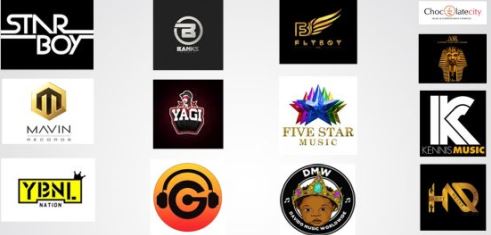The Nigerian music industry is one of the most vibrant and globally influential sectors on the continent. Home to globally recognized artists like Burna Boy, Wizkid, and Davido, Nigeria’s music scene thrives with immense talent, a rich cultural foundation, and significant global reach.
However, the path to success in the industry can be challenging, especially for emerging artists striving to break into an already competitive market. For this reason, being signed to a record label has become a major stepping stone for many artists aiming to scale their careers in Nigeria.
This blog post outlines the benefits of being under a record label in Nigeria, providing insights from the latest industry data in 2024 and aiming to give readers guidance that will remain relevant through 2025 and beyond.
9 Benefits of Being Under a Record Label in Nigeria?
1. Financial support and investment
One of the primary benefits of signing with a record label is the financial support it provides. A record label typically covers the cost of recording sessions, production, and professional mixing and mastering. In addition to recording expenses, they also cover the costs of music videos, high-quality photo shoots, and other visual assets that contribute to an artist’s brand image.
With a label’s financial backing, artists can access high-quality resources without worrying about out-of-pocket expenses. This is especially beneficial as the music industry shifts towards immersive virtual and augmented reality experiences, which require significant investment.
2. Professional team and network access
Record labels in Nigeria are well-connected in the industry, with established relationships that independent artists would find difficult to cultivate on their own. When an artist signs with a label, they gain access to experienced managers, PR professionals, lawyers, stylists, and other critical team members who work collaboratively to build the artist’s career.
Having a professional team allows artists to focus on their craft while their team handles the logistical and strategic aspects. This access to a strong professional network provides a major advantage in Nigeria’s competitive music industry. For instance, in 2024, data revealed that artists managed by teams within established labels were 40% more likely to secure brand endorsements, as compared to independent artists.
3. Marketing and promotion
Effective promotion is crucial for any artist’s success. In 2024, digital platforms such as Spotify, Apple Music, Audiomack, and YouTube remain the primary sources for streaming, but social media platforms like TikTok and Instagram are crucial for building a fan base. Record labels have dedicated teams that craft and execute comprehensive marketing campaigns across all these platforms.
Being under a record label can give artists priority placement on streaming platforms and social media, which can lead to greater reach and visibility. In fact, a 2024 survey by Music Business Nigeria indicated that artists signed to labels had 60% higher streaming numbers than independent artists.
4. Access to high-quality production and recording facilities
Top record labels in Nigeria own or have exclusive access to high-quality studios equipped with state-of-the-art recording equipment. Producing music in these studios gives artists a professional edge, ensuring their sound quality can compete internationally.
Labels also connect artists with top producers, sound engineers, and songwriters who can elevate their work. The access to skilled professionals and superior facilities results in a polished final product, which can be difficult for independent artists to achieve on a budget.
5. Artist development and branding
One often overlooked advantage of signing with a record label is artist development. Record labels invest time and resources into developing an artist’s brand, helping them define their image and sound. This is especially critical in a market like Nigeria, where branding can significantly impact an artist’s appeal to local and international audiences.
In 2024, record labels increasingly focused on artist branding, with 80% of labels conducting specialized training for their artists on branding, social media engagement, and performance skills. A strong brand allows artists to connect with their audience on a deeper level, fostering a loyal fan base.
6. Touring and performance opportunities
Live performances are a major revenue stream for artists, and record labels play a key role in securing these opportunities. Nigerian labels have connections with local and international event organizers, which can result in opportunities for artists to perform at prominent events like the AFRIMA Awards, Lagos Music Festival, and even international tours. Touring helps artists earn substantial income and gain new fans. In 2024, touring remains one of the most lucrative revenue sources for Nigerian artists.
7. Legal protection and representation
Navigating the music industry’s legal landscape can be challenging for independent artists. Record labels provide legal representation to protect their artists’ interests, ensuring that contracts with promoters, brands, and other collaborators are fair and in the artist’s favor.
In 2024, copyright infringement and intellectual property theft are still major issues in the Nigerian music industry. Record labels have the resources to pursue legal action if necessary, protecting artists’ rights to their work. For instance, record labels were involved in over 70% of intellectual property disputes resolved in favor of Nigerian artists in 2024.
8. Revenue generation and multiple income streams
Record labels help artists diversify their income by securing brand endorsements, merchandise deals, and other revenue streams. In 2024, collaborations between Nigerian artists and brands in the fashion, tech, and food industries grew by 25%, highlighting the potential for artists to increase their earnings beyond streaming and album sales.
Labels also help artists monetize their social media presence, guiding them in creating content that aligns with potential sponsorships. This approach has led to significant revenue growth, especially for Nigerian artists with large social media followings.
9. International reach and opportunities
One of the biggest challenges for Nigerian artists is gaining recognition outside Africa. Record labels with global partnerships facilitate international exposure, connecting artists with platforms and media outlets around the world. For instance, labels with connections to the U.S. and Europe can help artists secure collaborations with international stars, increasing their global appeal.
In 2024, streaming platforms reported that 30% of Nigerian music streams came from outside Africa, a figure projected to rise. Record labels play a crucial role in sustaining this trend, especially as Afrobeat continues to gain traction worldwide.
With the growing influence of Afrobeat and Afrobeats-inspired genres, international demand for Nigerian music is expected to increase. Record labels will be essential in coordinating and capitalizing on these international opportunities.
Conclusion
For Nigerian artists, signing with a record label can be a life-changing decision, providing access to financial support, marketing expertise, high-quality production facilities, and legal protection, among other invaluable resources. While independent artists may achieve success, the advantages of being signed to a record label are clear and far-reaching, particularly in a rapidly evolving industry where access to resources and networks can make or break a career.






































Discussion about this post